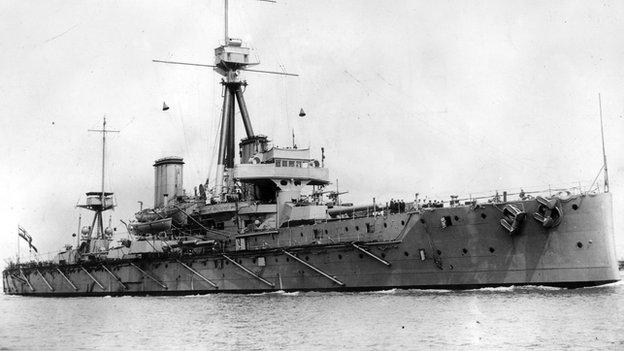World War One: MP Sir Alfred Mond and anti-German abuse
- Published
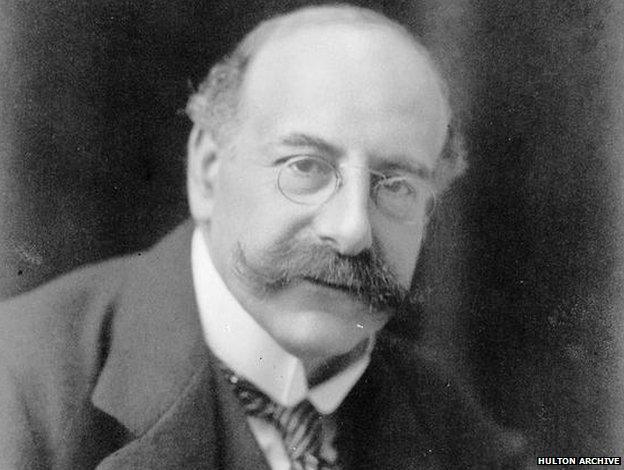
Sir Alfred Mond became the subject of conspiracy theories because of his German heritage
In the world's first truly mechanised war, tanks and battleships both played their part in the Allied victory.
Yet the technical advance in armour-plating which made these inventions possible was pioneered not by a British scientist, but a German one.
Moving to the UK in 1862, Ludwig Mond discovered that adding 3.5% nickel to steel greatly increased its strength.
He and his Lancashire-born son Alfred were local celebrities in the Swansea Valley village of Clydach, where the Mond Nickel Works brought relative prosperity to a previously economically deprived area.
Yet when Germanophobia gripped Britain at the height of World War One, the name of Mond became unfairly associated with treachery.
Ludwig died in 1909 and never lived to see the public turn on his family.
His son - by then Sir Alfred, Liberal MP for Swansea - bore the brunt of the hostility.
Enlightened employer
"Alfred had lived in Britain all his life, but the Daily Mail made a big thing of supposedly revealing that he had a German middle name, Moritz," said Clydach historian Rhian Evans.
"He was accused of having a flock of carrier pigeons to send messages back to Germany - they were just ordinary pet pigeons - and even of having built gun batteries in his garden."
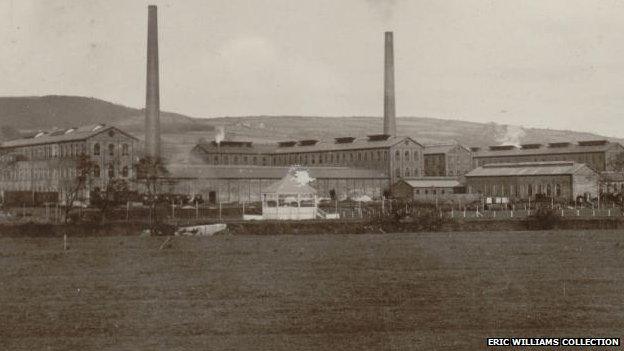
The Mond nickel works brought relative prosperity to a previously deprived area
Writer and broadcaster Phil Carradice said the conspiracy theories were unfair to a man paying his workers around nine shillings a week above the national average and whose factories were helping Britain win the war.
"Alfred Mond was an extraordinarily good boss - nobody could have been less deserving of anti-German abuse than him," he said.
"He realised early on that a happy workforce was a productive workforce, so as well as paying them relatively well, he provided them with parks and bowling greens, and even a golf course at a time when golf was still very much the preserve of the upper classes.
"But to a certain extent someone in Sir Alfred's position would have been cushioned from the Germanophobia - it was the working class who really suffered."
Hysteria
Anti-German resentment flourished in south Wales, especially after the sinking of the British ocean liner Lusitania in May 1915 with the loss of nearly 1,200 lives.
German dockers in Cardiff were sacked when their Welsh colleagues refused to work with them and Llanelli Town Council used the Lusitania disaster as an excuse to intern German nationals.
Yet there seems to have been no such prejudice amongst the ruling elite.
In fact, when David Lloyd George became prime minister in 1916 he brought Sir Alfred into his government as first commissioner for works.
Swansea University historian Dr Gerry Oram believes this class divide was by no means accidental.
"Lloyd George was a pragmatist," he said.
"He could see the value of talented men like Mond, regardless of their national heritage, but could also see the benefit of whipping up outrage to boost moral support for the war effort."
Sir Alfred himself recovered well from the hysteria - despite falling out with Lloyd George in 1926 and defecting to the Conservatives, two years later he was created 1st Baron Melchett.
But perhaps his crowning achievement was negotiating the merger of the Mond Nickel Company and three other businesses to create Imperial Chemical Industries, better known as ICI.
- Published25 February 2014
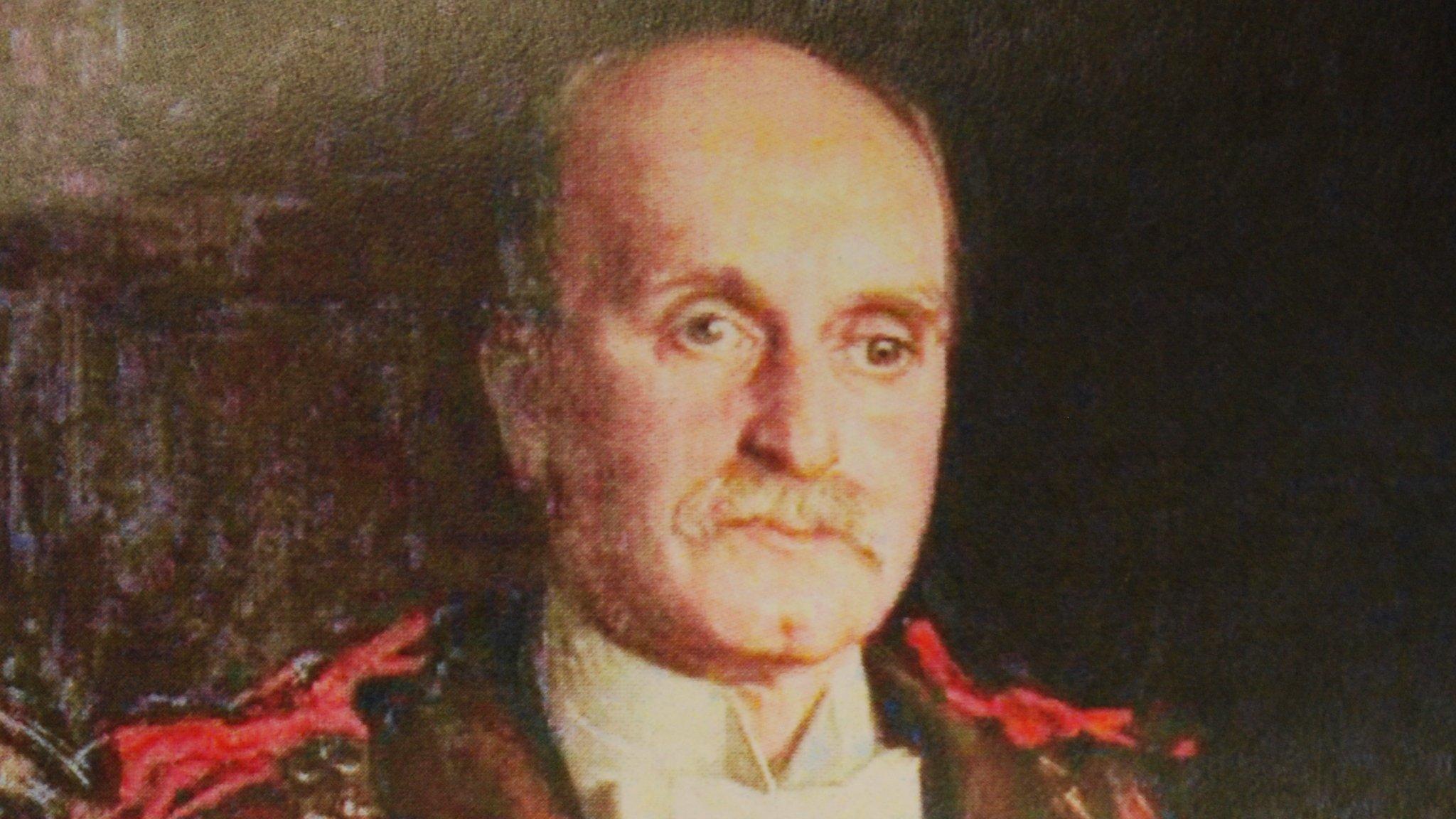
- Published21 April 2014
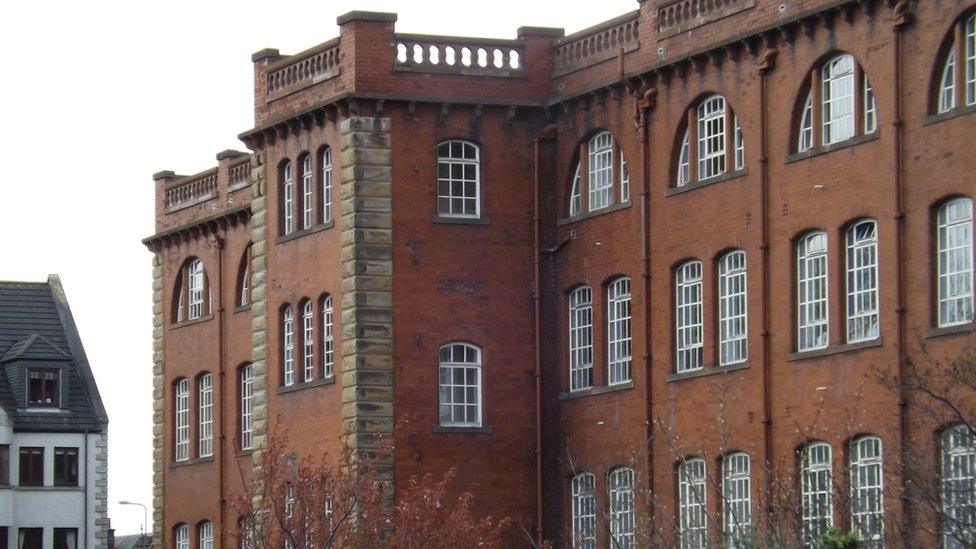
- Published2 June 2014
